by James Weeks | Aug 18, 2014 | Blog
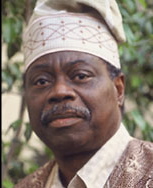
Baba Afolabi Epega
He came in my dreams, the way ancestors often do, because that’s when we’re most receptive.
Baba Epega didn’t stay long.
I guess he had other things to do in the Other World. After all, an Awo’s (diviner’s) work is never done – not even on the Other Side.
Baba Epega was a world authority on Ifa; he was the co-author of the book, “The Sacred Ifa Oracle.” Baba was also a mentor to many, including myself, up until his passing in 2006.
And I can still hear Baba’s laughter and booming voice as he taught me the basics of divination.
In the dream, the other night, Baba was teaching me songs for the orisas.
Oddly enough, I don’t think Baba visited me by dream merely because he wanted to talk to me. After all, we had tons of conversations on earth.
I believe Baba wanted to talk to YOU!
For those who never had the privilege of meeting Baba, this is what I sense his Spirit is trying to say to you right now.
Listen carefully and take notes cause Baba’s a very busy man.
1. Be totally dedicated to what your spirit is calling you to do. No excuses.
2. When will love come into your life? When you learn to love yourself. When you have more self-respect.
3. Change your character if you expect to see changes in your life.
4. Be patient in all things! If you can’t follow ants, you can’t follow Ifa.
5. Study! Study! Study!
6. Don’t forget the ancestors. You’re nothing without the ancestors.
7. Sacrifice is important. There’s no way you can succeed without sacrifice.
8. The truth never changes; it never dies. The truth will always prevail.
9. The purpose of divination is to make you think; to give you alternatives.
10. Do not fear death; death is not the end; it is an obligation of life.
Blessings,
P.S. (To hear some brief audio clips of my old conversations with Baba Epega, visit this link:)
And if you enjoyed this article, sign up for my inspirational newsletter with the link below. It’s free.
James Weeks
Producer/Across The King’s River
by James Weeks | Aug 14, 2014 | Blog
 Like the rest of the world I was shocked by the tragic passing of Robin Williams…
Like the rest of the world I was shocked by the tragic passing of Robin Williams…
In a culture that worships fame, money and success, it’s easy to lose sight of two facts: money doesn’t buy happiness and never will; money doesn’t always buy mental health.
“Williams’ death is a wake-up call – depression is no laughing matter,” says Eve Meyer, executive director of the San Francisco Suicide Prevention.
Here’s the reality: wealthy people commit suicide at roughly the same rate as poor people.
Yet the myth that wealth equals happiness persists; it’s the image that Hollywood projects to the world.
During my last trip to Nigeria in 2008, it bothered me that my little African brothers would spend countless hours around the T.V. watching Hollywood blockbusters and MTV. They seem to think streets in the U.S. are paved with gold.
I tried to tell them that most folks in the U.S. don’t live that way and the vast majority in this country are either struggling or broke. They didn’t listen. They couldn’t listen. They chose to believe what they wanted to believe.
On some level, we all choose to believe what we want to believe, despite evidence to the contrary. Because most of us don’t have access to wealth, we tend to think money is the magic answer to all our problems.
Those who have money must be “living it up” – ballin’, we think.
Clearly, Mr. Williams wasn’t living it up. He wasn’t ballin’ either.
His tragic passing puts the issue of mental illness and depression in sharper focus. Even though middle-aged white men are at greater risk for suicide than the rest of us, we need to pay closer attention to mental illness in our own communities too.
The reality is that depression is closer to home than we would like to admit…
No one is immune to depression. We all have family members or friends that struggle with it at one time or another, for one reason or another.
“It is important to learn and understand that each of us is capable of saving someone else’s life. Each of us who has felt invisible pain of any kind is an especially important force for saving the life of another person, who may save the life of yet another person in the future,” says Eve Meyer, executive director of San Francisco Suicide Prevention.
For me, the passing of this comedic genius is yet another reminder to focus on what really matters because the size of your bank account and fame do not.
But how you feel on the inside does.
Blessings
Feel free to leave your comments and if you enjoyed this article, sign up for my monthly inspirational newsletter below. It’s free!
James Weeks
Producer, Across the King’s River.
by James Weeks | Aug 5, 2014 | Blog

Hershaba and KC Hallet
I recently brought two souls together in a wedding ceremony on the beach.
It was a new beginning for them, but it was also a new beginning for me because it was my very first wedding ceremony as an Ifa priest.
They felt honored and I felt honored!

Invoking the ancestors
As I spoke to friends and family of the couple gathered in a semi-circle in the sand, the inspiration for my talk came from the sea.
To me, the sea represents new life and the journey into the unknown.
And anytime you follow love you’re venturing into the unknown…
Can’t love anyone or anything from a safe place and expect to get somewhere.
You’ve got to take some risks.
And this brings me to you! Are you taking risks or are you playing it safe?
If you’re playing it safe, how is that working for you? Are you happy?
I’m not merely talking about relationships, I’m talking about connecting with what you love or who you love in a powerful way that makes you feel alive again.
Bob Marley sang: “Who feels it, knows it.” 
It’s true. When you’re in the love zone no one has to tell you. You know; you feel.
And it’s contagious! I was in a love zone as I performed that wedding ceremony! I’m still glowing!
If you’re feeling stuck, ask yourself what inspires you or who inspires you these days and move in that direction.
Don’t think about it; FEEL what your soul is saying.
Inspiration is the voice of Spirit speaking to you. Listen to that voice. Follow the love and surrender to the force.
Something powerful awaits you in the unknown!
Blessings!
P.S. If you liked this blog article. Sign up for my inspirational newsletter below. It’s free!
James Weeks
Producer/Across The King’s River
by James Weeks | Aug 3, 2014 | Blog

My daughter, Tulani.
We’re working on ideas for my upcoming film, Across The King’s River.
Keisha is a poet, writer and story consultant. We’re trying to nail down what’s driving the main characters in my film and why.
See, when you’re working on a documentary film, you just don’t take off somewhere and start filming. You’ll waste a lot of time and money that way.
You need to understand the core message of the film – the heart and the soul, and then you can craft a story around it.
We all have stories and I believe that our stories are sacred.
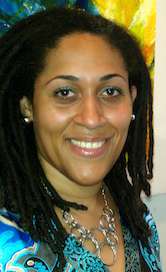
Keisha-Gaye Anderson
The problem is that too many of us are not in touch with our own story and drift through life without unlocking the power or the potential that lies within.
It’s not easy…
That’s what I’ve discovered as I work on my own story for the film. I’m one of the main characters in my film, and when you work with a story consultant like Keisha, she pushes you to understand what each character wants and why they want it.
I struggled as I reflected on what I want. I had to dig deep!
I’m going to ask you the same questions Keisha might ask if you were a main character in a book or a film.
1. What do you want at this stage of your life? Why do you want it?
2. What obstacles are you facing? What is holding you back from getting what you desire?
3. What do you feel conflicted about? What will happen if you don’t get what you want?
4. Do you want the same thing at this stage of your life that you wanted years ago?
5. What about the other characters in your life? What do they want?
6. Do other family members understand your story? Do you genuinely understand theirs?
7. Which characters outside your family do you closely identify with? Why?
8. Are you at peace with your story?
These questions are important whether you’re working on a film or not. Just like you can’t move forward in a film without clarity, you can’t move forward in life without clarity either.
You MUST understand what’s driving you.
If you’re feeling stuck right now, maybe it’s because you’re no longer clear about your story. Or maybe your story has changed or is in the process of changing and you’re not sure what it all means.
What have I learned from working on story development exercises with Keisha so far?
1. What we want isn’t always obvious to us.
2. Why we want something isn’t always obvious either.
3. Most of us are far more complex than we realize.
4. Most of us feel conflicted about who we are, what we feel, and what we want.
What about you? I would love to hear your thoughts, so feel free to comment.
To learn more about Keisha-Gaye Anderson and her upcoming books and film projects, visit her website at: http://www.keishagaye.com/
If you’ve enjoyed reading this blog article, sign up for my monthly inspirational newsletter. It’s free. Here’s the link.
Blessings,
James Weeks
Producer, Across The King’s River
by James Weeks | Jul 21, 2014 | Blog
I lost my first client…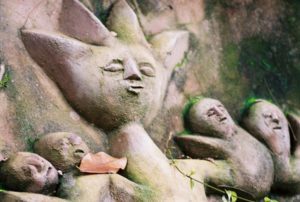
I did my first and last divination for her a few months ago. Last weekend, I got the blow. Her mom called to day that this brilliant, young woman who had so much to offer this world is no longer with us.
She collapsed suddenly and died.
I couldn’t believe it. Still can’t believe it. Her sudden death was yet another reminder that every moment is precious. Can’t take anything, anyone for granted.
How quickly we forget…
Her sudden passing also made me reflect deeply on the work that I do as an Ifa diviner.
You see, from my cultural and spiritual point of view as an Ifa diviner, things didn’t have to turn out this way.
She had been warned…
During the reading Ifa spoke of her health and the need to do ritual to protect it.
Sure, there were other reasons why spiritual work (ebo) was needed and I explained those as well.
But she DID NOT follow through with the rituals, nor did respond to my follow-up email.
Not sure why.
Who knows! Maybe she didn’t have the money! Maybe she didn’t think she was in danger. I clearly recall that health didn’t seem to be a concern when we spoke. She wanted guidance about her career, and her desire to have a baby.
But physically, she felt fine, she said. Sure, she had stress like we all do, but besides that, my client didn’t seem to have any health worries.
The fact that someone who seemed to be so healthy could suddenly die startled me. But it didn’t startle my elders in Africa one bit.
Experience has taught them over and over that when Ifa prescribes ritual medicine, it’s always for a good reason. Even if it doesn’t seem to make logical sense at the time.
Consulting Ifa but not following through with the rituals, is like going to a doctor but not listening to advice nor taking steps to improve your health.
Health issues come up often in my readings!
Given the statistics in our community it’s easy to see why. The report card on African-American health in the U.S. is horrific. Heart disease is the leading killer for ethnic minorities in the U.S. Fifty-percent of African-American women are expected to die from heart disease. One-third of African Americans suffer from high blood pressure. African-Americans are twice as likely to be diagnosed with diabetes than whites. Cancer is the second leading cause of death for ethnic minorities. African-American women are 36% more likely to die from breast cancer. African-American men are twice as likely to die from prostate cancer than whites.
As I reflect on these statistics, I feel deep gratitude for my elders in Africa and their deep, ancient knowledge. They have helped my family through many health issues that could have been devastating.
I feel honored to be a part of this ancient healing and spiritual tradition. It’s not easy working with clients in the West. African healing systems are not well-respected in the minds of many. Clearly, we have a lot of educating to do.
Working as a team, I know we can help save lives. We are committed to our craft.
But you must be willing to listen the first time.
If you’ve enjoyed this blog article. Sign up for my free monthly, inspirational news letter below.
Blessings
James Weeks/Across The King’s River
by James Weeks | Jun 17, 2014 | Blog
Crazy or not crazy?
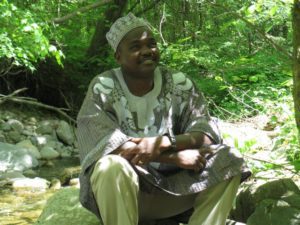
Malidoma Some
In this provocative article written by Stephanie Marohn, African shaman Malidoma Some offers a spiritual view of mental illness.
You can read the full article here:
In Dagara culture, “mental illness signals the birth of a healer,” says Malidoma Patrice Somé. “Thus, mental disorders are spiritual emergencies, spiritual crises, and need to be regarded as such to aid the healer in being born.”
“What those in the West view as mental illness, the Dagara people regard as “good news from the other world.” The person going through the crisis has been chosen as a medium for a message to the community that needs to be communicated from the spirit realm. “Mental disorder, behavioral disorder of all kinds, signal the fact that two obviously incompatible energies have merged into the same field,” says Malidoma. These disturbances result when the person does not get assistance in dealing with the presence of the energy from the spirit realm.”
Malidoma was shocked the first time he visited an mental institution in the West.
“What struck Dr. Somé was that the attention given to such symptoms was based on pathology, on the idea that the condition is something that needs to stop. This was in complete opposition to the way his culture views such a situation. As he looked around the stark ward at the patients, some in straitjackets, some zoned out on medications, others screaming, he observed to himself, ‘So this is how the healers who are attempting to be born are treated in this culture. What a loss! What a loss that a person who is finally being aligned with a power from the other world is just being wasted.'”
The Dagara view on mental illness intrigues me not only because it radically differs from the Western psychiatric model, but because I’m interested in how African healing modalities can benefit more of us in the West.
Granted, it’s no easy road but due to the increasingly popularity of African spirituality, I’m hopeful that the healing traditions of the Motherland might one day be as widely accepted (or respected) as acupuncture and other non-Western healing traditions.
In this You Tube clip, cultural and biological anthropologist, Chelsea Strayer, discusses her research into Asante healing traditions.
What are your thoughts on the Dagara perspective on mental illness? Or on the growth or challenge of integrating African healing traditions in the West? I would love to hear your comments.
And if you’re in need of a spiritual reading yourself or need to have spiritual work done, just let me know. I’m a professional Ifa diviner and my services are available.
If you enjoyed reading this article, sign up for my inspirational newsletter. It’s free. Here’s the link.
Blessings,
James Weeks
Producer/Across The King’s River
I

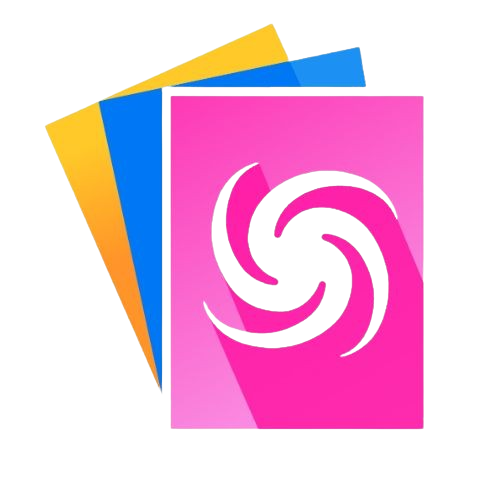
 Like the rest of the world I was shocked by the tragic passing of Robin Williams…
Like the rest of the world I was shocked by the tragic passing of Robin Williams…





